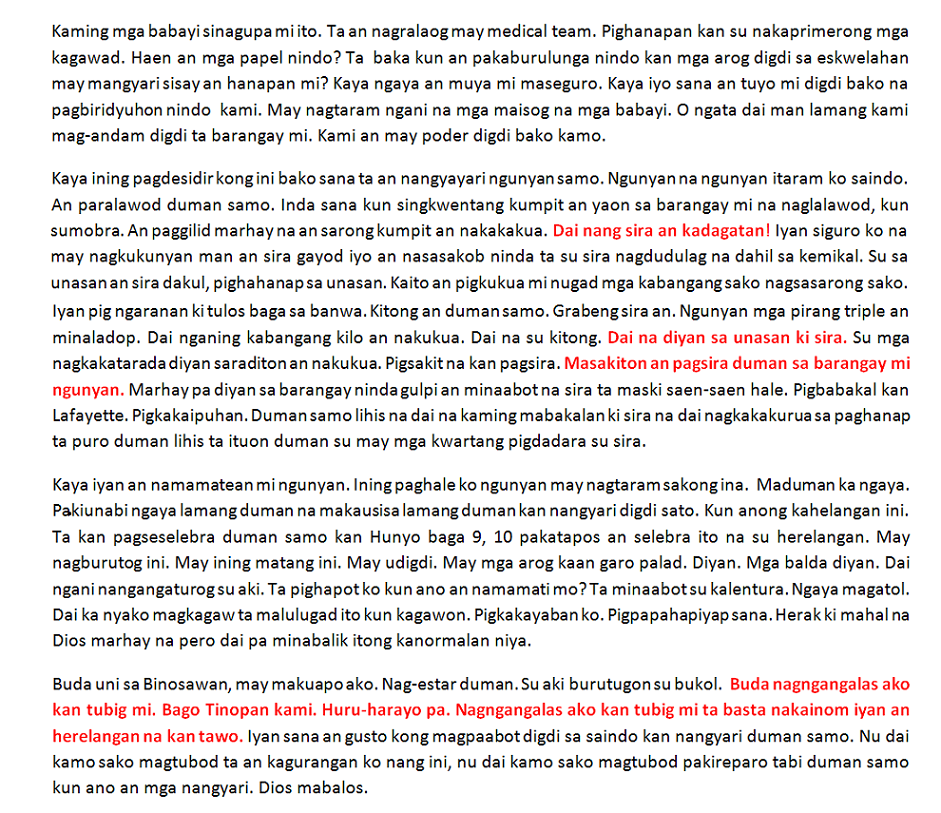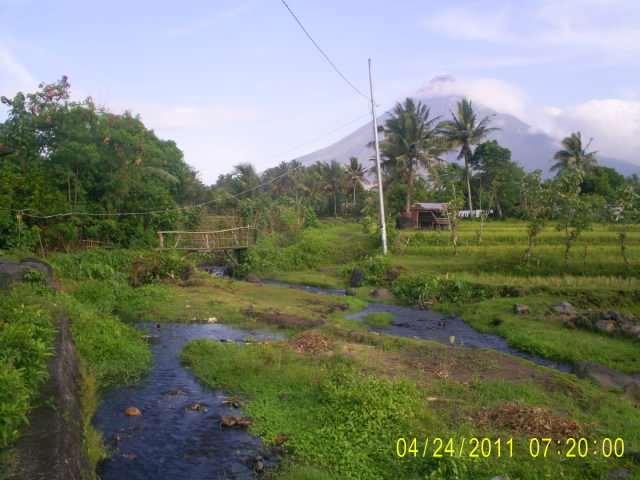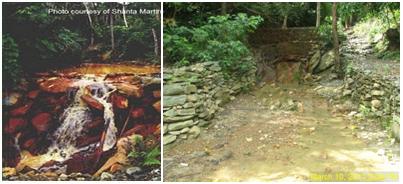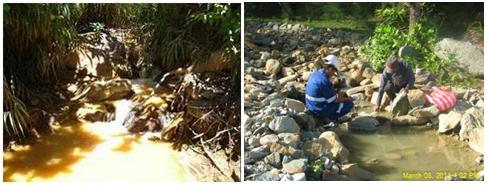It is also riddled with deceptive insinuations. Government's review of mining laws and practices, the Catholic Church's stand in behalf of affected communities and the environment, and rebel attacks against mine sites are summarily lumped together as elements that are considered bad for business, without discussion of the validity and reasonableness of their actions (the State and the Church, not the NPAs) or the multitude of transgressions committed by mining companies themselves that merited such strong opposition in the first place.
Further, ask any respectable green group about the government's position on mining and you will inevitably hear, among other things, a lament on the contradiction of having an Environment Secretary who performs the roles of both "protector of the environment" and "chief mining sales rep of the country". Between the two roles, guess which usually takes the upper hand? The one with the more money involved, of course.
Perhaps, Mr. Gopalakrishnan should have asked about the root cause as to why mining firms are having such a bad time in the Philippines. Here's something that may give him a clue: there is no town, province or region at all in the country, with a mine site operating within its territory, that has gained any significant economic development from mining. In fact, the opposite is true: the provinces where mining companies operate are among the poorest provinces in the country.
In exchange for cheap local labor, minimal taxes and collateral benefits from mining infrastructures, host communities have to bear the brunt of environmental degradation, resource depletion, health hazards, human rights violations, loss of agricultural livelihood (farming and fishing), and in the case of indigenous peoples, loss of ancestral lands.
But, of course, pity the mining companies. They have to contend with an unsteady government, an oppositionist Church and armed rebels. Bo-hoo for them. Never mind Marinduque, Rapu-Rapu or Sibuyan.
Here is a solid example of Northern journalism looking at Southern ills and totally not getting the picture.
Philippines mining in a quandary, but riches beckon
http://www.guardian.co.uk/feedarticle?id=7223059; also
http://services.inquirer.net/express/08/01/14/html_output/xmlhtml/20080114-112238-xml.html
also headlined
Attacks hinder Philippine mining progress
http://www.abc.net.au/news/stories/2008/01/15/2138406.htm?section=world
By Raju Gopalakrishnan
Reuters, Monday January 14 2008
TAMPAKAN, Philippines, Jan 14 (Reuters) - When communist rebels attacked a mining camp in the southern Philippines two weeks ago, foreign executives grimaced -- the second such incident in three months showed one of their worst fears coming true.
Policy inconsistencies, hostility from the church and rebel threats have long frustrated companies hoping to mine the Philippines for minerals. But with easily accessible deposits elsewhere in the world already picked over, those risks are an increasingly inevitable part of the business.
"There are very interesting undeveloped prospects in this country," said Raul Farfan of Xstrata
"Most undeveloped deposits in the world are in third world countries and the environments are not easy. But attached to the challenge is the great opportunity of developing these deposits."
It is conducting pre-feasibility studies with commercial production scheduled for 2013.
The communist New People's Army claimed responsibility and said it was part of a "struggle to assert national patrimony against the rapacity of foreign monopoly capitalists".
It was the second rebel attack on a high-profile mining project in three months.
In October, communist rebels attacked a mine owned by Australia's El Dore
"Before it was the potential threat, now we have had the action," said Manila-based business consultant Peter Wallace of the communist attacks. "The risk has gone up one level."
DOUBLE THE TIME
"I keep telling investors, if you are promised a certain time-frame, double it, and see if it's still viable."
The government of President Gloria Macapagal Arroyo has made opening up the mining sector one of its economic cornerstones, but it sometimes sends confusing signals.
After championing a law opening mining to 100 percent foreign ownership, Arroyo agreed to review it in 2006. The review has now been forgotten, and mineral firms believe it's back to business.
Only $1 billion has flowed into the mining industry since 2004, but the government hopes this will surge to about $10 billion within the next three years.
It has taken the Tampakan attack seriously. Last week, the Mineral Development Council, an inter-departmental group, vowed to prevent attacks on mining projects and ordered police and the military to cooperate with local government and mining companies.
MANICURING NAILS
About half a dozen soldiers were milling about the entrance, smoking, with their M-16 rifles nearby. Two stalls selling cigarettes, soap and other goods were without customers and one of the owners was having her nails manicured as fog drifted.
"I am still scared," she said. "It could happen again."
Dalena Samling, one of the tribal chieftains, said she was distressed by the attack, although she had some differences with the company on payments and job opportunities.
"Before, not even government agencies knew we existed," she said in an interview in Tampakan town, at the base of the hill. "But when SMI came in, we were recognised as a people, and provided health insurance, livelihood and scholarships."
The church, a powerful force in the Roman Catholic nation, is against the project, although it stops short of supporting the rebels.
"We don't condone violence, but these are the social ills that can come about with large-scale mining," said Father Romeo Catedral of the diocese of Marbel, where Tampakan lies.
"We pray to the mining company to leave, so this community can live in peace."
"We are as committed to advance this project as we were on the very first day." (Reporting by Raju Gopalakrishnan; Editing by Jonathan Leff and Megan Goldin)
































































































































No comments:
Post a Comment